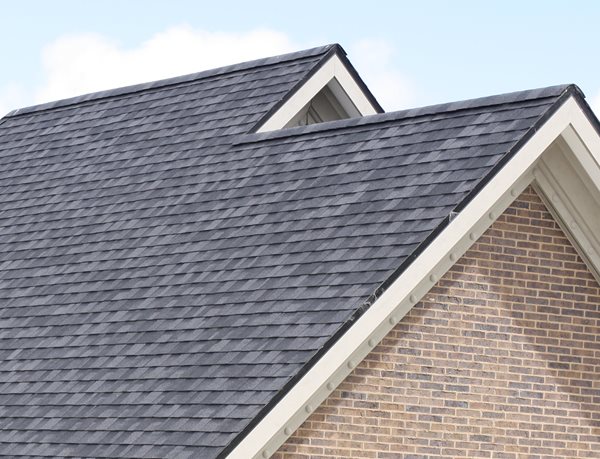What are Roofing Shingles made of?
by siteadmin

The roofing tiles you find on many homes in the US are made up of only a few materials. The most commonly used type of shingle, fiberglass asphalt shingles, is very common.
Asphalt for roofing is an oil-refining by-product. It has the same properties as asphalt on roads but with a higher level of toughness. The viscosity is increased by blowing through the product – called oxidizing – and mineral powder to improve weather resistance.
Asphalt
Asphalt shingles are designed to be resistant to fire, water and wind. Roofs can be styled in many different ways with their variety of textures and styles.
The base of asphalt shingles is either organic or made of fiberglass. Both sides are coated with asphalt, and the exposed surface (also called the reverse side) is coated with ceramic-coated opaque mineral grains. This surfacing comes in many colors and is designed to help prevent algae from growing on the roof surface.
The granules add color and resistance to water to the roof. The granules of the shingles are fused into one to make a sturdy and durable roofing shingle. This roofing system is also built to withstand strong winds, heavy hail, and heavy snowfall. This roofing is both resilient and premium looking. These shingles have a higher price tag than standard architectural or three-tab shingles. They also offer a more attractive aesthetic.
Fiberglass Mat
Fiberglass Shingles are lightweight and durable. They also come in many colors. Fiberglass shingles feature a simple installation design. This makes them ideal for DIYers that want to cut down on costs.
Fiberglass Mat is made up of chopped strands, which are then woven to form a flat matting. A styrene adhesive holds the mat together. The material was designed to be used in conjunction with vinyl esters and polyester resins. Epoxy is not compatible with the material.
The mats are coated with a mixture of asphalt and mineral "filler", which increases the weather resistance. This material helps to increase the shingle's overall durability, and also makes it more resistant to fire. The shingles can then be covered with ceramic granules to add color and texture.
Mineral Granules
Roof granules can be a great way to add a little sparkle and sand. These granules perform an important function by allowing water to drain effectively from asphalt roof shingles.
In the manufacturing process, the asphalt is impregnated into the shingles with a hot liquid. Asphalt is produced either as a natural product or as a waste by-product from oil refinement. It is then oxidized, by blowing through air. This increases the viscosity of the asphalt to a level suitable for roofing shingles.
Granules can be found in many colors and materials. Some are designed to inhibit black streaking algae growth. Other granules can be used to reduce smog, and they may also help you meet energy efficiency standards for certain building codes. These granules, with their vibrant colors, also enhance the curb appeal and value of roofs. Backsurfacing sand (a washed, finely-ground form of limestone) is used to prevent packaged roofing shingles from sticking with each other during shipping and storage.
Back Surfacing
Back surfacing, also known as "back coating", is applied to the back of shingles. This prevents them from sticking together when they are manufactured, packaged, or shipped. It also helps to give them Class A fire-resistance ratings.
This is the final layer of the fiberglass mat. It is the main waterproofing layer and improves the weather resistance. The aerated mixture is formulated for durability and to withstand roof stress such as temperature changes, wind and other factors. Some roofing companies offer impact resistant shingles to residents of areas that are prone storms. These shingles protect your home while increasing its value.
The roofing tiles you find on many homes in the US are made up of only a few materials. The most commonly used type of shingle, fiberglass asphalt shingles, is very common. Asphalt for roofing is an oil-refining by-product. It has the same properties as asphalt on roads but with a higher level of toughness.…
Recent Posts
- New Orleans Concreters Advocates for Stamped Concrete Driveways as the Ultimate Choice for Durability and Style
- Roofers Jacksonville FL: The Premier Choice for Roofing Excellence in Jacksonville
- Gutter Installation Jacksonville FL: Revolutionizing Home Protection
- The Comprehensive Guide to Gutters in Jacksonville FL
- The Comprehensive Guide to Gutters in Jacksonville FL
